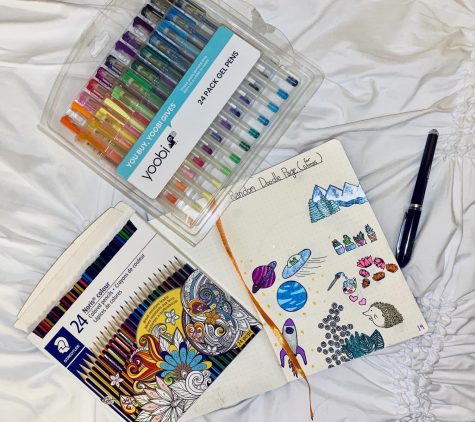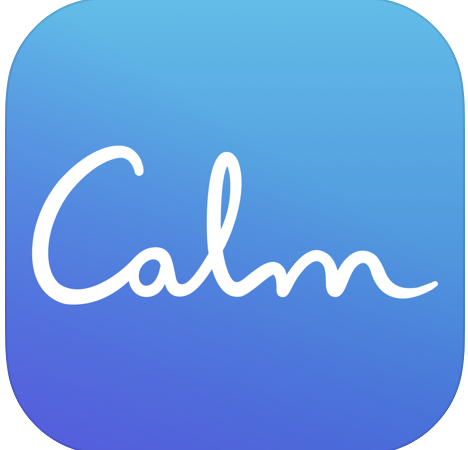Five ways to cope with election stress
You are not alone
This past week, the entire country, if not the world, is holding its breath. And with good reason. As ballots are still being counted, protests are sparking across the nation, and the election is still without a foreseeable victor, chances are stress levels are high. Not to mention, on Wednesday, the United States had 100,000 new coronavirus cases in one day, setting a new and highly distressing record. Coupled with looming finals for college students, if you are anything like me, every day has proven to be a new battle to preserve your mental health. Of course, no stress management tip or technique is a substitute for seeking help from a licensed healthcare professional, but here are five ways I have been coping with stress and anxiety these past few weeks (and months).
Getting fresh air 
Nothing has helped me more than simply stepping away from the screen and onto a trail. I am lucky enough to have multiple hiking trails right behind my house, so I have made it part of my daily routine to take at least one hour out of my day and go for a walk in the woods. Sometimes, I bring headphones and listen to a relaxing playlist but other times I unplug completely and just listen to the sounds of nature. Getting a bit of exercise and fresh air can do wonders for my mental state, and maybe it can for yours too. Even if it is cold outside, I recommend setting aside some time to just be outside to clear your mind, whether it’s by walking, running or even just sitting somewhere and having a quiet moment to yourself.
Journaling
I know journaling is not for everyone, and to some, it can seem more of a chore than a stress management tip. But journaling doesn’t always mean writing down all of your deepest thoughts and feelings in perfectly grammatical sentences. My journal contains some of this, but it also has a ton of random doodles, intentions, thoughts as they pop into my head throughout the day, wish lists, tv watch lists and more. I have a ton of colored pencils and pens too that I use when journaling, which helps me add a little pop of color to my life. I have found that journaling has been a super therapeutic vessel for me, so if you’ve never done it, I would recommend at least trying it out. It’s like adult coloring! One thing that has really helped me is reminding myself that my journal is just for me, so it does not have to be perfect, neat or organized.

Listening to ASMR
Here is another tip that I definitely know is not for everyone. I’ve had many friends who I’ve tried to put on ASMR and were totally weirded out. And to be fair, it is a little strange when you first try it and it totally depends on what videos or sounds you tune into. ASMR stands for Autonomous Sensory Meridian Response, and I would describe it as a pleasant (nonsexual) tingling sensation you experience, often mostly in your scalp but it can be all over. If you’ve ever had someone brush your hair and felt tingly, that’s ASMR. Not everyone is ASMR sensitive, meaning not everyone can experience this, but for those who can, it is a soothing feeling that can totally mellow you out. I often watch ASMR videos at night to unwind before I go to sleep which includes listening to sounds such as hair brushing, wood tapping, rain falling, crinkling paper and more. It may sound super odd, but I would give it a chance! Even if you are not ASMR sensitive, these kinds of videos may deeply relax you anyways, as they are often meant to help you fall asleep and quiet your mind.
Meditating and breathing exercises

Although I can’t say I do this every single day, I have been attempting to incorporate meditation into my daily routine. I will admit it can be very difficult for my brain to go quiet, especially during this time period when it feels like my mind is constantly racing with negative thoughts and worries about the future. But taking the time, even for just 5 minutes to meditate can do wonders. Meditation can actually have neurological benefits, such as lowering cortisol levels, otherwise known as the stress hormone. It also has a range of other possible benefits as well such as helping to manage anxiety and improving your sleep. Meditation and breathing exercises often go hand in hand, but if you don’t know where to start, I would recommend a guided meditation. You can find these on YouTube or even download an app with guided meditation, such as Calm, which I personally use and enjoy.
Finally, check in with a friend or loved one
During such a polarizing time, it can be easy to feel isolated and like you are going through all of this alone. Reaching out to a friend or loved one, especially if you are living alone or are away from home can be a very important action to take right now, not only for yourself but for others in your life. Just speaking your mind and putting your thoughts into words can be very beneficial for some people. Schedule a call or even a video chat to verbalize your emotions and feelings, instead of keeping them all bottled up, which may lead to more stress in the long run. Additionally, not only is this beneficial for yourself, but it is also important to check in with those you love and provide a compassionate and empathetic ear.
These five tips have helped me to stay afloat during this time, but again, it is important to mention that you know yourself best and if you feel like you need to seek out professional help, to do so. Your mental health comes first, although it can be easy to put on the backburner and remember that no matter how it may seem, you are not alone.
Email Emma at [email protected] or follow her on Twitter @emma_sammuli.

"Either write something worth reading or do something worth writing.” -Benjamin Franklin
Email Emma at [email protected] and follow her on Twitter...








